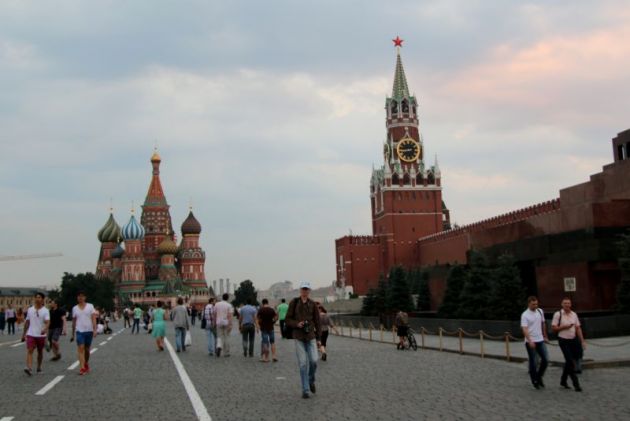UN, US experts urge Russia: Drop Jehovah's Witness action that 'threatens religious freedom'

GENEVA – Russia's move to ban the activities of Jehovah's Witnesses using anti-extremism legislation in a lawsuit are "extremely worrying" say three United Nations human rights experts who condemned the suit.
"This lawsuit is a threat not only to Jehovah's Witnesses, but to individual freedom in general in the Russian Federation," the experts said on April 4.
"The use of counter-extremism legislation in this way to confine freedom of opinion, including religious belief, expression and association to that which is state-approved is unlawful and dangerous, and signals a dark future for all religious freedom in Russia," they stressed.
Thomas J. Reese, a Jesuit priest, who is chair of the U.S. Commission on International Religious Freedom, also criticized the Russian action.
"The Russian government's latest actions appear designed to eliminate the legal existence of Jehovah's Witnesses in Russia," he said in a statement.
"If the Supreme Court rules in April that this group is 'extremist' it would mark the first time that Russia legally has banned a centrally-administered religious organization and would effectively criminalize all Jehovah's Witnesses' activity nationwide.
"USCIRF calls on the Russian government to stop its harassment of this peaceful religious group."
The U.S. commission said the treatment of the Jehovah's Witnesses reflects the Russian government's tendency to view all independent religious activity as a threat to its control and the country's political stability.
SOVIET APPROACH
"This approach dates back to the Soviet period and impacts other religious groups, including peaceful Christians and Muslims. These groups are also being persecuted for their beliefs in the Russian-occupied areas of Crimea and eastern Ukraine," said USCIRF.
The condemnation of the Russian action follows a lawsuit lodged at the country's Supreme Court on 15 March to declare the Jehovah's Witnesses Administrative Center "extremist," to liquidate it, and to ban its activity.
A suspension order came into effect on that date, preventing the administrative center and all its local religious centres from using state and municipal news media, and from organizing and conducting assemblies, rallies and other public events.
A full court hearing was scheduled for April 5 and if the Supreme Court rules in favor of the authorities, it will be the first such ruling by a court declaring a registered centralized religious organization to be "extremist."
Concerns about the counter-extremism legislation have previously been raised in a communication by the three experts to the Russian authorities on July 28, 2016.
The suspension order imposed on March 15 is the latest in a series of judicial cases and orders, including a warning sent to the organization last year referring to the "inadmissibility of extremist activity."
This has already led to the dissolution of several local Jehovah's Witness organizations, raids against their premises and literature being confiscated.
"We urge the authorities to drop the lawsuit in compliance with their obligations under international human rights law, and to revise the counter-extremism legislation and its implementation to avoid fundamental human rights abuses," the UN experts concluded.
The U.N. experts are: David Kaye (USA), Special Rapporteur on freedom of opinion and expression, Maina Kiai (Kenya), Special Rapporteur on freedoms of peaceful assembly and of association, and Ahmed Shaheed (the Maldives), Special Rapporteur on freedom of religion or belief.